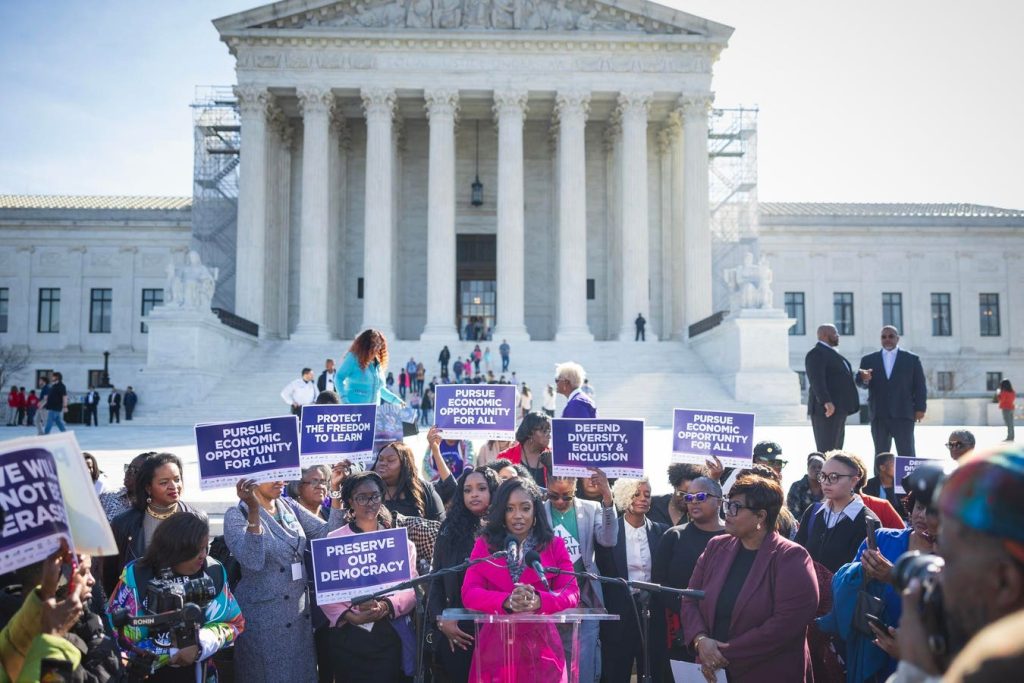Legal cases are often about proving a point or setting a precedent, rather than just the facts at hand. The recent court ruling regarding the Fearless Fund blocking grants for Black women is part of a larger vision by legal activists to eliminate discussions about race. Those advocating for race blindness argue that past racial inequality can only be overcome by not talking about race, but many believe that acknowledging and prioritizing racial and gender identities is crucial for moving towards equality. Structural barriers continue to impact women and people of color in society, making the elimination of race discussions impractical.
In the case against the Fearless Fund, the American Alliance for Equal Rights sued the organization for discriminatory practices towards women of other racial backgrounds. The Fearless Fund defended its grant program for Black women, arguing that it promotes racial balance and economic freedom. Despite several rounds of legal battles, a federal court of appeals ruled against the Fearless Fund, dealing a setback to their grant program. This decision has raised concerns about the disparities faced by Black leaders, especially Black women, who receive a minuscule percentage of venture capital funding.
The primary figure behind the attack on racial discussions is conservative activist-litigant Ed Blum, who has targeted various institutions and programs meant to address systemic inequities. Blum has been successful in ending affirmative action policies and diversity initiatives in educational settings and workplaces. His efforts are supported by a network of right-wing funders and organizations, aiming to eliminate conversations about race under the guise of striving for a race and gender-blind society. This approach has been criticized for ignoring the ongoing need to address racial inequities and disparities.
The push to eliminate discussions about race and ethnicity has been met with resistance from scholars and activists who argue that such conversations are essential for recognizing and challenging racist policies and structures. They warn against the dangers of a post-racial myth that deems talking about race as a form of racism. Umberto Eco’s reflections on the impoverished vocabulary limiting our ability to fully discuss systemic obstacles resonate today, particularly in light of the severe underinvestment in Black women. The lack of diversity in funding distribution highlights the importance of addressing racial equity with clarity, nuance, and proactive measures.
As legal battles continue to unfold, the broader goal of achieving a race and gender-blind society through the suppression of discussions about race becomes increasingly controversial. The challenges facing Black women and other marginalized groups demand a more comprehensive approach to addressing racial disparities and systemic barriers. Efforts to eradicate structural inequalities must involve not only legal actions but also social awareness and conscious efforts towards promoting diversity and inclusion. The fight for racial equity remains crucial in shaping a more just and inclusive society for all.













